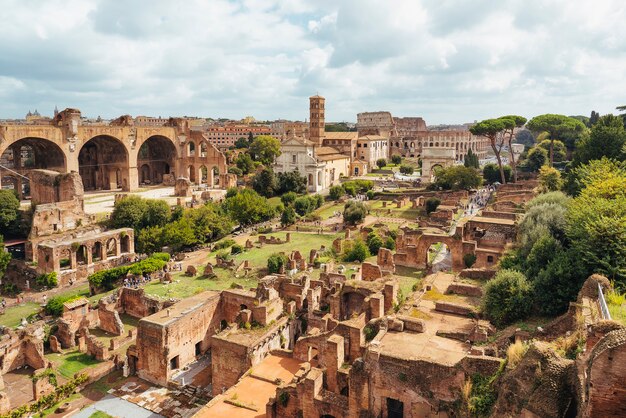Table of Contents
The Roman Empire was one of the most powerful and influential civilizations in world history. At its height, it stretched from Britain to the Middle East, dominating Europe, North Africa, and parts of Asia. However, despite its military strength and cultural achievements, the empire eventually fell. This article explores the rise, expansion, and ultimate decline of the Roman Empire.
The Expansion of the Roman Empire
Early Beginnings and Republic (509–27 BCE)
Rome was founded as a small city-state in Italy around 753 BCE, according to legend. Over time, it developed into a republic in 509 BCE, where elected officials and the Senate governed. Through military conquest and alliances, Rome gradually expanded its territory, controlling the Italian Peninsula by 264 BCE.
Punic Wars and Mediterranean Dominance (264–146 BCE)
Rome’s expansion accelerated during the Punic Wars against Carthage (modern-day Tunisia), a powerful naval empire in North Africa. These wars (264–146 BCE) ended with Rome destroying Carthage and gaining control over Spain, North Africa, and the western Mediterranean.
Julius Caesar and the End of the Republic (49–27 BCE)
Julius Caesar, a military general, expanded Roman territory by conquering Gaul (modern France) and leading campaigns in Britain. His rise to power and dictatorship led to political instability, and he was assassinated in 44 BCE. This event led to civil war, and eventually, his adopted heir Octavian (later Augustus) became the first emperor in 27 BCE, marking the start of the Roman Empire.
The Peak of Roman Power (27 BCE – 180 CE)
The period of the Pax Romana (Roman Peace) from 27 BCE to 180 CE was the golden age of Rome. During this time:
- Emperor Augustus (27 BCE – 14 CE): Strengthened the empire’s administration, economy, and military.
- Expansion under Trajan (98–117 CE): The empire reached its greatest territorial extent, stretching from Britain to the Middle East.
- Infrastructure and Culture: Romans built roads, aqueducts, and cities, spreading Roman law, Latin, and Greek culture across the empire.
The Decline of the Roman Empire
Economic Problems and Overexpansion
By the 3rd century CE, Rome struggled to manage its vast empire. Some key issues included:
- Heavy taxation: To fund military campaigns and government expenses, Rome imposed high taxes, burdening citizens.
- Inflation: The empire devalued its currency, leading to economic instability.
- Overexpansion: Controlling such a large empire became difficult, leading to weak borders and ineffective administration.
Political Instability and Corruption
- Rome suffered from frequent changes in leadership. From 235 to 284 CE, over 20 emperors ruled in quick succession, many assassinated or overthrown.
- Corruption and power struggles weakened central authority.
Barbarian Invasions
- Germanic tribes, including the Visigoths, Vandals, and Huns, invaded Roman territory.
- In 410 CE, the Visigoths, led by Alaric, sacked Rome.
- In 476 CE, the last Roman emperor, Romulus Augustulus, was overthrown by the Germanic leader Odoacer, marking the end of the Western Roman Empire.
The Fall of the Western Roman Empire (476 CE)
While the Western Roman Empire collapsed, the Eastern Roman Empire (Byzantine Empire) survived for nearly 1,000 more years until the fall of Constantinople in 1453 CE.
Legacy of the Roman Empire
Despite its fall, the Roman Empire left a lasting impact on the world:
- Law and Government: Roman legal principles influenced modern legal systems.
- Architecture and Engineering: Roman roads, aqueducts, and buildings inspired modern infrastructure.
- Language: Latin evolved into the Romance languages (French, Spanish, Italian, Portuguese, and Romanian).
- Christianity: Rome played a major role in spreading Christianity, which became the dominant religion in Europe.
Conclusion
The Roman Empire’s rise and fall demonstrate the challenges of managing a vast civilization. Its achievements in law, governance, and culture continue to influence modern society. Although the empire fell, its legacy endures, proving that Rome was one of history’s greatest civilizations.

